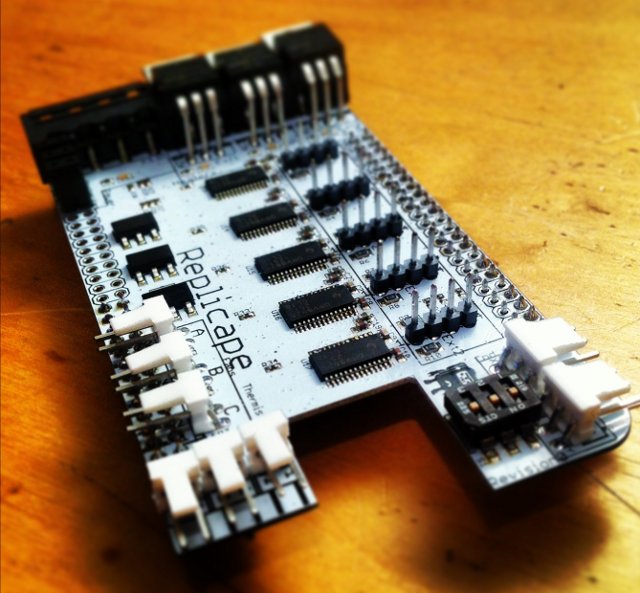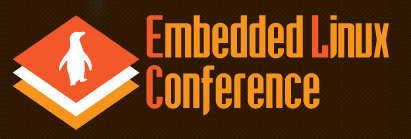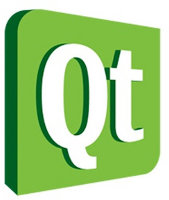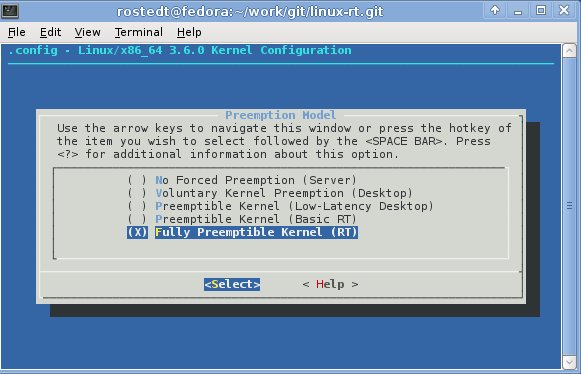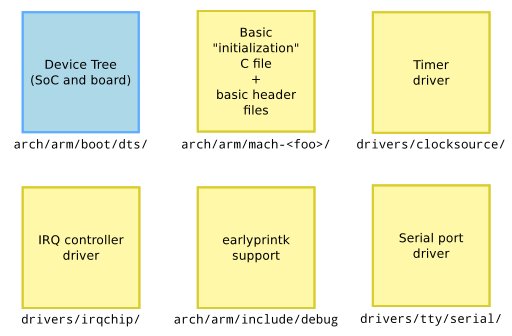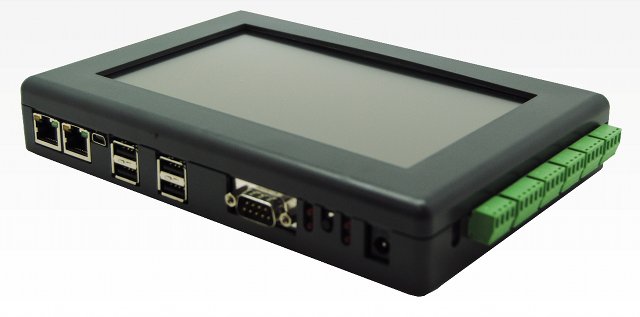Beagleboard.org launched the Beaglebone Cape Design Contest back in November, several designs were submitted, and yesterday, they announced the 3 winning CAPEs who will be manufactured and sold by Circuitco Electronics: Replicape by Elias Bakken – 3D printer cape Interacto by Chris Clark – Cape with a triple axis accelerometer,a gyroscope, a magnetometer and a 640×480 30fps camera. Geiger cape by Matt Ranostay – Geiger counter cape Since today I’ve started to write about 3D printing, let’s carry on and have a closer look at the Replicape. The Replicape 3D printer cape includes: 5 stepper motors (X, Y, Z, Ext1, Ext2) 3 high power MOSFETs (PWM controlled) for 2 extruders and 1 HPB 3 medium power MOSFETs (PWM controlled) for up to 3 fans 3 analog input ports for thermistors 3 inputs for end stops (X, Y, Z) Programmable current limits on steppers motor drivers (SMD). No need to manually adjust […]
Embedded Linux Conference 2013 Schedule
The Embedded Linux Conference (ELC 2013) will take place on February 20 – 22, 2013 at Park 55 Hotel in San Francisco, California. ELC consists of 3 days of presentations, tutorials and sessions. There will be over 50 sessions during those 3 days. I’ll highlight a few sessions that I find particularly interesting, and that did not get presented at ELCE 2012 (AFAICR). February 20 11:00 – Anatomy of the arm-soc git tree by Olof Johansson, Google We are now two years into the new maintainer model for ARM platforms, and we have settled down into a workflow that maintainers have adjusted well to. Still, when new platforms arrive, or when maintainer ship changes hands, there’s sometimes a bit of ramp-up in getting used to how we organize our git tree and how we prefer to see code submitted to fit that model. This presentation will give an overview of […]
Yocto Project Overview and Update – ELCE 2012
Last post about ELCE 2012 videos… David Stewart, manager of the Yocto Project team within the Open Source Technology Center at Intel, gives an introduction to the Yocto Project, as well as a status update at ELCE 2012. Abstract: The Yocto Project is a joint project to unify the world’s efforts around embedded Linux and to make Linux the best choice for embedded designs. The Yocto Project is an open source starting point for embedded Linux development which contains tools, templates, methods and actual working code to get started with an embedded device project. In addition, the Yocto Project includes Eclipse plug-ins to assist the developer. This talk gives a walk-through of the key parts of the Yocto Project for developing embedded Linux projects. In addition, features will be described from the latest release of the Yocto Project, v1.3. The talk will include demos of some of the key new […]
Qt on Embedded Systems – ELCE 2012
Lars Knoll, chief maintainer for the Qt Project, gives a presentation about Qt on embedded systems, including a demo with the Raspberry Pi at the Embedded Linux Conference Europe 2012 in Barcelona, Spain. Abstract: For well over 10 years, Qt has been used in many types of embedded devices, ranging from high-end medical systems, through mobile phones and smartphones, all the way to simple devices like coffee makers. This presentation will show some of the work that has been put in Qt throughout the years to support embedded devices, some of the challenges that the development team faced in order to bring a fully-featured desktop toolkit to resource-limited devices, along with solutions they came up with. Time permitting, the presenter will also show Qt demos running on an embedded device. This session is intended for embedded application developers looking to make use of the capabilities of recent hardware, as well […]
BoFs: Developer Tools and Methods: Tips & Tricks – ELCE 2012
Tim Bird, senior staff software engineer at Sony Network Entertainment, hosts a BoF session about tools & methods for embedded Linux developers at ELCE 2012. Abstract: In this Birds-of-a-Feather-session, Tim will share some of his favorite tips for developing embedded Linux software. This will include tips for using ‘git’, how he does multi-platform development, and tips for other tools that other developers might find useful. Prior to the event, Tim will do a survey and solicit ideas from other developers as well. Please come to this BoF prepared to share your own productivity tips for embedded Linux development. Tim talks is divided into the following key points: Git tips – How to finds info about commits (git log, git show), use aliases (e.g. for colored output), find a commit that caused problem (git bisect), and more Patch management – quilt patch managing tool, diffinfo, and splitpatch (to break patches apart) […]
Understanding PREEMPT_RT (The Real-Time Patch) – ELCE 2012
Steven Rostedt, working at Red Hat, talks about Real-Time Linux at the Embedded Linux Conference Europe, in Spain on November 6, 2012. Abstract: The real-time patch (which provides CONFIG_PREEMPT_RT), has been around since 2005. Started by Ingo Molnar and maintained by Thomas Gleixner and several others, it has grown from a hobby RTOS into a very serious contender. Several distributions (Red Hat, SuSE, Debian, Ubuntu) supply a kernel version that includes this patch. The embedded world has started adding the -rt patch to their own devices that they ship. But do the embedded developers understand what the -rt patch supplies? Programming for real time, and especially when writing kernel code requires special knowledge to avoid real time traps. This talk will explain what the real time patch provides and special programming tips that will ensure embedded developers will get the best from their devices. He goes through the following key […]
Your New ARM SoC Linux Support Check-List – ELCE 2012
Thomas Petazzoni, embedded Linux engineer and trainer at Free Electrons, describes the steps he followed to add a new Marvell SoC to the mainline kernel at ELCE 2012. Abstract: Since Linus Torvalds raised warnings about the state of the ARM architecture support in the Linux kernel, a huge amount of effort and reorganization has happened in the way Linux supports ARM SoCs. From the addition of the device tree to the pinctrl subsystem, from the new clock framework to the new rules in code organization and design, the changes have been significant over the last one and half year in the Arm Linux kernel world. Based on the speaker’s experience on getting the support for the new Marvell Armada 370 and Armada XP SoC support in the mainline Linux kernel, we will give an overview of those changes and summarize the new rules for ARM Linux support. We aim at […]
Porting Android 4.0 to a Custom Industrial Board Based on TI OMAP 3 – ELCE 2012
Matthias Brugger, embedded engineer at ISEE, describes the steps the company had to follow (referred to as a “war story”) to port Android 4.0 to a custom industrial board at ELCE 2012, Barcelona, on November 5, 2012. Abstract: This talk will explain the lessons learned by giving a step-by-step introduction of porting Android to a custom board which was designed for an industrial environment. This includes an introduction to the Android build environment, first board bring-up and peripheral integration. The talk will cover bootloader integration, power management. It will focus on the peculiarities configuring Ethernet and Wi-Fi in Android. Also button and display integration, as well as integration of third-party accelerator support will be explained. Android devices are getting popular not only in the mobile market but although in the industrial environment. Porting Android to a custom board can be challenging, especially as little information about Android internals are available. […]


